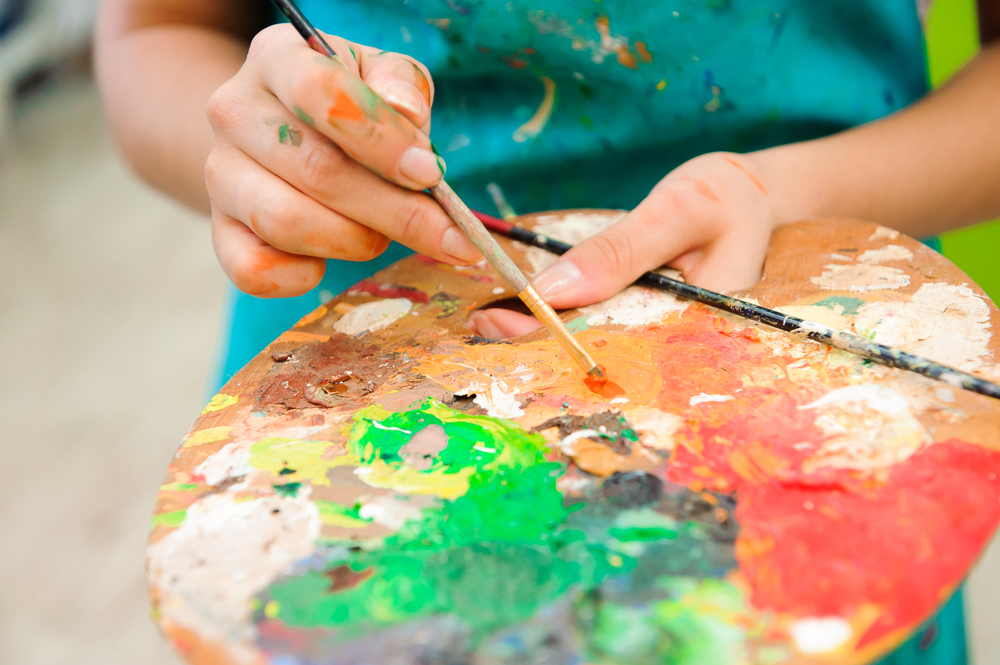Bill Dorsey works as a shift supervisor at the Ada County Juvenile Justice Detention Center in Boise, Idaho. Outside of his daily duties, Dorsey also provides a valuable service to the youths held in detention — he teaches music. By providing guitar, mandolin and drumming lessons, Dorsey creates a space for kids to learn skills and find their passion by engaging in healthy, communal activities. Since Dorsey began his informal musical instruction, the detention center now incorporates a “healthy hobbies” program that includes gardening and fly fishing.
Traditionally, recreation-based treatment programs like the one Dorsey runs are geared toward people with disabilities, injuries or illnesses. Using arts and crafts, drama, music, dance, sports and community outings, recreational therapists help maintain or improve a patient’s physical, social and emotional well-being.
But increasingly, programs like the “healthy hobbies” program offered in Boise are using these same methods to address the needs of kids who have engaged in criminal behavior. These programs focus on cultivating life skills in juveniles that will benefit them once they re-enter society.
Depending on the program, juveniles can receive anything from education and work training to assistance in building relationships, engaging in their communities, improving their health and expressing their creative side. Applying recreational therapy treatments to kids in juvenile facilities not only teaches them new skills and exposes them to new experiences, it helps them channel their excess energy away from high-risk behavior — and, hopefully, toward a life free of crime.
According to a study released by the National Recreation and Park Association, kids between the ages of 9 and 17 have an innate need to engage in more intense and exciting activities than they did as children in order to stimulate their growing brains. Inactivity and boredom can lead to serious mental health issues for kids, including depression, feelings of aimlessness or disconnection from society. On the flip side, kids’ biological tendency to seek out new sensations and sources of stimulation can push them to engage in criminal or otherwise anti-social activities — especially if they lack safe outlets for their energy.
Other ways to get thrills
Fortunately, kids’ brains are also especially susceptible to molding through social learning and recreation. Exposure to healthy recreational experiences can thus steer at-risk youth away from crime and toward the development of lifelong passions for music, the arts and other beneficial hobbies.
Marc Schindler, executive director of the Justice Policy Institute, takes these finding to heart when he observes that “kids grow from experiences beyond their everyday world.” He has extensive experience in juvenile justice reform and has previously served as director of Washington, D.C.’s Department of Youth Rehabilitation Services. During his tenure there, he helped introduce delinquent youth to a variety of recreational experiences designed for positive development, like white-water rafting. Schindler describes the benefits of this type of activity:
“White-water rafting was way out of [these kids’] typical experience. It helped show this group of adolescent boys, thrill-seekers in the way typical of their age, that they can get the same feeling not by joy-riding in stolen cars, but by racing down a river with nothing but a raft between them and the raging water.”
Ultimately, incorporating recreational therapy into juvenile detention facilities will help reduce recidivism in young people. The Journal of Adolescent and Family Health studied the success of one specific type of recreational program — wilderness therapy, a type of experience-based therapy with activities involving challenging, outdoor experiences. After the comparative study was completed, analyses revealed that those who participated in wilderness therapy were less likely to commit a future status or criminal offense than the comparison group that did not participant in the wilderness therapy.
By providing kids with alternative and positive ways of being active, recreational therapy within juvenile detention facilities will benefit both the kids involved and their communities.
Jesse Kelley is a policy analyst and state affairs manager for criminal justice at the R Street Institute.

Pingback: Recreational Therapy is Lifesaver for Kids in Juvenile Detention - Juvenile Justice Information Exchange - Florida Mental Health Law
Pingback: | Rec Therapy Today
Pingback: A Culture of Corruption (Episode 79) | #FSCK 'Em All!
Pingback: Recreational Therapy Is Lifesaver for Kids in Juvenile Detention — Justice Policy Institute – Live Gossips